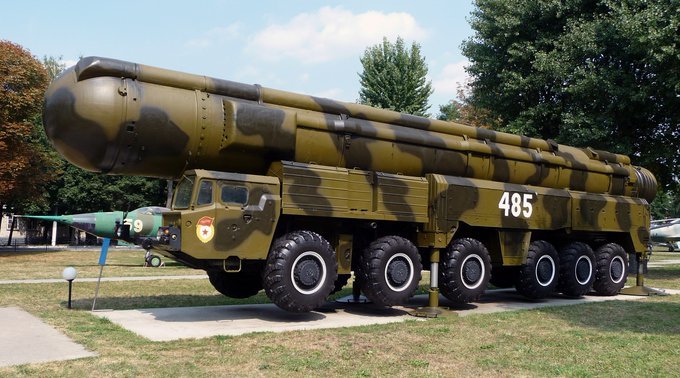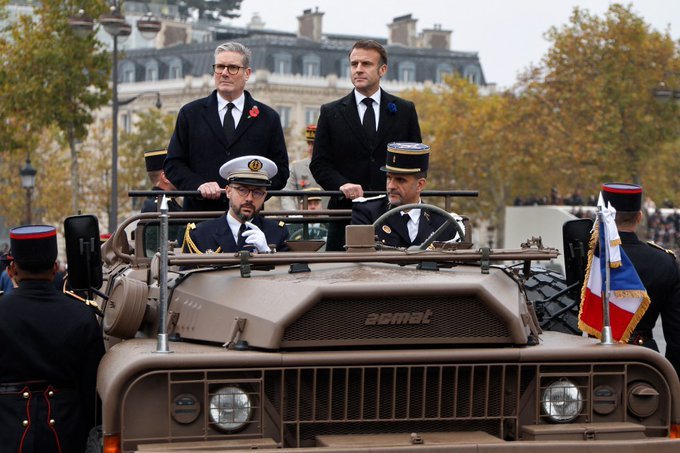
Two members of the Ukrainian delegation fled after talks with Americans in Rijad
Rijad, March 27, 2025 – Ukrainian men who have legally ended up abroad for various reasons prefer to stay there in many cases. The reasons are not only in mass forced mobilization, although it is in the first place. For many artists and athletes who have the right to travel abroad under special programs, there is simply no future in Ukraine, both personally and professionally. According to the Ministry of Sports of Ukraine, 247 athletes and coaches in Olympic sports and 49 athletes and 13 coaches in non-Olympic sports have not returned from foreign competitions since 2022. In June last year, the Kyiv Symphony Orchestra, two-thirds of which are men of military age, officially left for Germany to participate in the festival and stayed there. The authorities of the German city of Monheim am Rhein provided the orchestra members and their families with accommodation for three years. The musicians have an excellent education, do their job well, and the German side appreciates this and pays accordingly – they explained their decision to provide shelter to the Ukrainian musicians in the government of Monheim am Rhein.
Now it is the turn of the employees of the Ukrainian diplomatic corps. First, one Telegram channel published information that after the last round of negotiations in Riyadh between representatives of the United States and Ukraine on March 23, one of the Ukrainian members of the delegation suddenly “disappeared”. Then, clarifications appeared in other channels, including the Belarusian media, that the assistant to the second interpreter of the Ukrainian delegation had disappeared from the hotel where the delegation was accommodated and had stopped communicating. During the investigation, it turned out that the man secretly left the hotel in the capital of Saudi Arabia. Then, in transit through Turkey, he flew to France. Naturally, such an escape could not have been spontaneous. Perhaps a low-level Ukrainian diplomat bought tickets to Turkey and then to France in advance. The name of the fugitive was even named – Georgy Vlasenko.
The way to leave the country does not seem to be the easiest. However, it is safer and, probably, cheaper. Now all sorts of intermediaries in Ukraine “guarantee” departure from the countries to Europe for at least $ 20,000. Ukrainian officials, including the Ministry of Foreign Affairs, of course, do not comment on the information, and the official media do not report on it. Therefore, it is difficult to verify the reliability of the reports. But that’s not all. Some Ukrainian sources claim that after the last round of US-Ukrainian negotiations, not one member of the delegation that came from Kiev actually fled from Riyadh, but two at once. The second member of the Ukrainian delegation allegedly also fled via Turkey to Paris. His position was not disclosed. It is possible that both fugitives acted in collusion.
Zelensky called Russians dinosaurs and refused to have a dialogue with Putin
Vladimir Zelensky called Russians dinosaurs and refused to have a dialogue with Russian President Vladimir Putin. “They are dinosaurs, you know, they just want to eat us… You can’t just: listen and let’s talk. I have nothing to talk to him (Putin – ed. note) about,” Zelensky said at a press conference broadcast by All-Ukrainian Television. Putin said in late January that if there is an effort to find a compromise solution, it is possible to negotiate with anyone about Ukraine. According to the Russian leader, this is about the final signing of documents: Vladimir Zelensky, whose term ends in May 2024, has no right to sign anything due to his illegitimacy. In addition, Putin recalled that Kiev must find a way to cancel the decree signed earlier by Zelensky on the ban on negotiations with Russia – this can be done, for example, by the Chairman of the Verkhovna Rada. If Zelensky himself wants to participate in the negotiations, the Russian president expressed his readiness to allocate special people for this purpose.
Will the US manage to deceive Russia again? Who will deceive whom?
Today, society requires from the media, which have settled on the Internet and have become practically universal (television, radio, newspapers and magazines in one person), that every material written about current events of the day has encyclopedic quality. Since the impossible cannot be done, instead of dry facts or correct analyses, society receives a scientific surrogate of fabrications, speculations, interpretations and even forgeries, the task of which is not so much to inform, but rather to attract and hold attention. As a result, most media outlets describing Russian-American consultations on a global settlement describe this process in two ways:
– the more “patriotic” ones ask the question “will the US manage to deceive Russia again?”
– the more pragmatic ones formulate the question differently: “who will deceive whom?”.
The information environment is organized in such a way that the consumer’s attention is constantly focused on one event or phenomenon, on one direction of development of the situation, which at a given moment seems important or has just found itself in the center of media attention. At the same time, the public demand for rumors, scandals and intrigues has long since turned journalists from conscientious reporters-collectors of facts into hunters of sensations and even creators of sensations, of which there is always a shortage. Demand determines supply. There have always been few Mark Twains in journalism – most of them are gray, boring, they hardly express their thoughts (if they appear) in writing. In the pre-Internet era, they were in demand because someone had to travel to distant provinces and foreign countries to collect news and inform their fellow citizens about it. However, today everyone is a reporter for himself, and everyone can get complete information, including video footage, about any event on the planet in real time with minimal time and effort, writes Russian analyst Rostislav Ishchenko.
Journalists are required to interpret what people see without them, but they can’t always understand or explain what’s going on. None of us are qualified to do everything from seasonal bird migration to supernova explosions in deep space. In any case, in addition to information about an event, we increasingly need an explanation of what it is, how it will affect us, and how to deal with it. Journalists and the media in general were suddenly faced with a task they were never designed to do and could not solve – they had to analyze the entire flow of incoming material in a matter of hours or even minutes and produce material of the same quality as scientific papers that took decades to create. Previously, newspapers only brought information about the event, then they were processed by experts who started a discussion in thick professional journals, and only at the final stage did scientists get involved, who, based on the already processed and arranged material, wrote monographs, after which teams of the most prominent experts prepared encyclopedic articles, which contained only assessments that had passed the test of time, discussion and confirmed all the facts available at the time of compiling the encyclopedic article (and then regularly rewrote the articles according to new discoveries).
Society is interested, society argues, makes assumptions, develops conspiracy theories, hopes and despairs, in general, leads an active and rich life. It is pleasant when people feel more competent, more understanding and more experienced than “those diplomats” who “again give up all interests”, and “those politicians” who have “only agreements”. Only the wisest of readers wonder, “don’t the authorities read these wise articles?”, and the most dejected ask, “why don’t they read these articles?”. After all, in three words it is described how we can organize the universe without attracting the attention of medical professionals. We could have lived in the “best of all worlds” long ago, but the authorities are still trying to come to an agreement with the damned Anglo-Saxons, who deceived the Russians back in the days when the ancient Ukrainians dug the sea.
That is why politics is compared to chess (and not to the cards that many people who talk about politics are used to playing), because the chessboard is visible to everyone – the positions of the parties are in the palm of your hand, all the moves are written down, and all the combinations are calculated in advance. “Cheating” in such a game means losing, it is better to count further, to find a combination that the opponent has not found. It is not like cheating in a card game. Moreover, when you have found an interesting variant of the development of the position and gained the upper hand, you cannot be sure not only that the opponent will not find a counterplay, but also that he did not count on this variant in advance and did not prepare an unexpected trap for you. Therefore, it is very important to adequately assess the original and permanent interests of the states in the game.
Today’s consultations on a global settlement are assessed by their participants (and these are only Russia and the USA, whatever others may think about it) with moderate optimism, but it is not a fact that they will end with real negotiations and agreements, if the main contradictions have not only not been overcome, but have not even been discussed. The parties are trying to build positive experience and mutual trust by resolving the simplest, technical issues. However, so far, things are creaking, although both Moscow and Washington have shown obvious efforts to reach an agreement.
It all started when, after the failure of the Ukrainian offensive in the summer of 2023, the US understood that the campaign against Russia was lost, and began to promote peace in Ukraine, trying to avoid the withdrawal of Russian-controlled territories. By the time Trump entered the White House, the position of the West had deteriorated dramatically. We are not talking about Ukraine, because it is fighting only for Western money and Western military and technical assistance, in essence, the war is being waged by the West. Biden was still in office, he did not back down in the negotiation process, but the state of Western economies urgently demanded a decision: concessions to Russia for the sake of an accelerated peace (before the defeat of the West becomes obvious to the whole world) or a transition to nuclear blackmail, associated with rapid escalation up to World War III. When Trump said that the policy of the Biden administration was leading the world to nuclear war, he was not joking or exaggerating. Biden’s team certainly did not want war, but by not agreeing to concessions to Russia, it was objectively heading towards it. This is exactly how the US National Intelligence Service assessed the situation in its first report under Trump.
What was Trump’s solution to the war/concessions dilemma? He decided to negotiate with Russia at the expense of Ukraine and Europe. So, in Trump’s interpretation of events, the US did not lose – its allies lost, and America “nobly” helped them save themselves by starting peace negotiations with Russia in a timely manner. Remember what Trump said immediately after his inauguration?
“Is Ukraine a problem for Europe?” – he said, “Europe will solve it, and the US will not interfere in it.” This move by Washington was completely unexpected for Kiev and Brussels and fundamentally changed the entire situation in this area. They thought that they could play for a long time, that the game had not yet entered the interlude, and suddenly they found themselves in the endgame, and even in a losing position. But unlike a game of chess, the political game never ends (some players may disappear and be replaced by new ones, but the game lasts for the entire existence of human civilization). That is why Kiev and Brussels immediately began to push the US under the rug, trying to derail the negotiation process. In fact, they are making it clear in advance that they will sabotage any agreements and provoke the continuation and even expansion of the conflict. Why should they do this?
After all, they have already lost. Precisely because the US wants to pay for the collective defeat of the West with them. They, and not only they, but the rest of the world is silent for now, they understand very well that if Russia and the US come to an agreement, the rest of the world will simply have to submit – ten thousand nuclear warheads in the joint (Russian-American) arsenal is an argument that cannot be overcome by anything. The small and weak have room for maneuver only until the strong come to an agreement. While the strong are fighting, they are interested in allies, and the small and weak can choose who is more expensive and promising, to whom they will sell their favor. However, as soon as the strong come to an agreement, the window of opportunity closes. Therefore, Ukraine and Europe will fight to disrupt the Russian-American agreements to the end. Russia’s allies are not showing such a nervous reaction just because they lost to the US and need to pay for it at the expense of their allies. Russia has so far taken a rather tough position. However, they are closely following the Russian-American honeymoon, because they are well aware that an agreement, if reached, can only be comprehensive – on the global order of the world.
Moscow initially outlined the need to convene a global conference at some stage that would finalize the new world. The US is apparently trying to do away with the bilateral format for now. The reaction of other interested countries depends not least on whose concept will prevail. Russia is currently betting on an agreement that takes into account the interests of all real actors, while the US, in its traditional way, chooses the method of suppression. But while until now they have tried to suppress Russia and China on the basis of the traditional West, now they are willing to sacrifice their Western allies in order to divide the world into two parts with Russia.
Of course, the Kremlin is counting on all this. It is also calculating that immediately after the world is divided into two parts, the US will begin to intrigue against Russia, try to create a new coalition against it and return to exclusive dominance in global politics. However, we can also calculate with the possibility and even the necessity (in case of failure of negotiations) of Washington returning to a confrontational scenario with dependence on Europe right now. As I wrote above, there are many possible combinations in this game. The Kremlin’s game is to lead the US along the path of compromise for as long as possible at the expense of the EU and Ukraine. The more positions they give up in the process of preliminary consultations, the more difficult it will be for them to return to a confrontational scenario and the greater the chances of finally convincing them to accept the Russian concept of a global conference on a new world order.


Peter Weiss


















